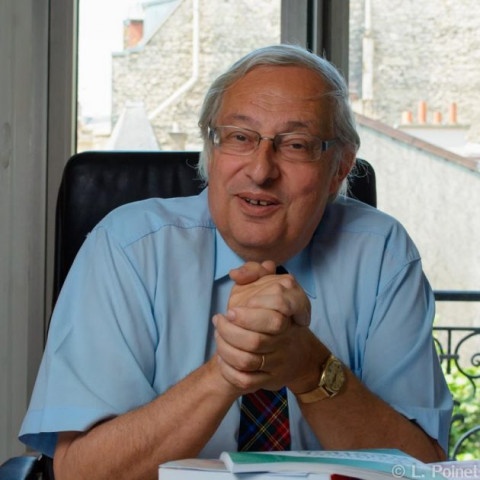Social, not power integration key to progressive systems
French political scientist suggests multilateralism is all but dead

Bertrand Badie. PHOTO: INSTITU FRANCAIS
The main stumbling block in this regard has been a lack of social solidarity and social integration apart from the tendency of states to prioritise strategic issues over social issues.
This was stated by renowned French political scientist and international relations thinker Bertrand Badie in a lecture on ‘Towards New Global Governance’ in the federal capital on Monday.
The lecture had been organised by the Sustainable Development Policy Institute (SDPI). A former professor of political science, Badie said that international institutions of global governance have hardly undergone reforms or adapted to the changing social dimensions.
“Multilateralism, even now, does not sufficiently take into account the social dimensions of contemporary globalization,” he said while explaining the failure of the system.
“Traditional multilateralism does not work anymore, as it was shaped in a very different context, in a time of superpower competition, when development, environment, new social and transnational violence, and multiculturalism were not the main issues at stake,” he added in a veiled stab towards the current crumbling of the European Union in light of Brexit.
Instead, he suggested that mini-lateralism had emerged as a substitute. Evidence for this, he pointed out, was plentifully available in modern diplomacy, contact groups and the comeback of bilateralism.
Badie termed the rise of demonstrations around the world as ‘protest diplomacy’ where marginalised stakeholders were denied all platforms of decision making.
“The only options left for protesters are the streets and the roads,” he said in an eerie recall of the 2014 street protests in Islamabad.
He further explained that it was social-integration, not power-integration which can prove to be the real cornerstone of a progressive and social system.
In light of Badie’s assessment, SDPI Joint Executive Director Dr Vaqar Ahmed said that there was a need for new research on what role developing countries can play in global governance.
“This will remain important if these countries wish to achieve their Sustainable Development Goals (SDGs).”
He said a South-South dialogue can be used to reach a consensus on what role can be played by post-colonial countries in a post-bipolar world.
“Developing countries also need to play a more proactive role in the reforms of multilateralism,” he said, adding that the voice of youth and the marginalised is still missing in global governance discourse.
“We also need a public-private dialogue to see what opportunities are coming Pakistan’s way as a result of international developments such as the US-China trade war and Brexit,” he added.
Dr Ahmed further said South Asia as a region also needs to study the dividends of the Franco-German cooperation, which is a lesson for arch-rivals Pakistan-India as well.
Published in The Express Tribune, February 12th, 2019.



















COMMENTS
Comments are moderated and generally will be posted if they are on-topic and not abusive.
For more information, please see our Comments FAQ